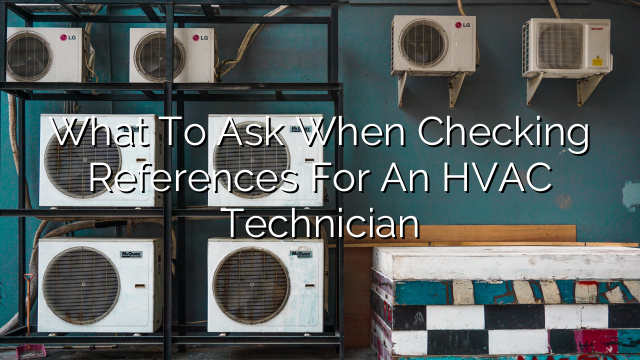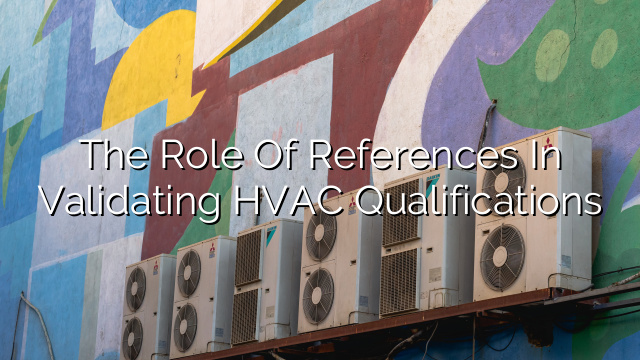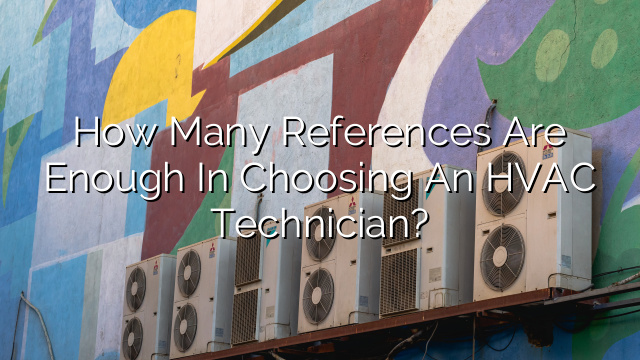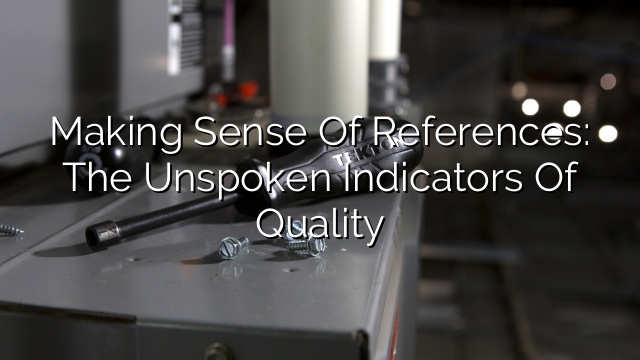Understanding the Importance of Technician References in HVAC Hiring
When it comes to hiring HVAC technicians, owners and managers of HVAC companies face the challenge of finding reliable, skilled professionals who can provide excellent service and represent their company well. One crucial yet often overlooked step in the hiring process is checking technician references. This practice can significantly impact your hiring success and the quality of your team.
Why Technician References are Essential
Technician references offer a window into a candidate’s past job performance and behavior. They can confirm details on a resume or application and provide insights into the technician’s work ethic, skills, and experiences. They are a necessary tool for making informed hiring decisions and building a strong team.
The Benefits of Checking References
- Verifying Skills and Experience: References can attest to a technician’s technical abilities and hands-on experience.
- Understanding Work Ethic: Past employers can speak to the candidate’s reliability, punctuality, and overall professionalism.
- Assessing Cultural Fit: Conversations with references can reveal how well a technician might mesh with your company’s values and team dynamics.
- Identifying Red Flags: Previous employers may provide information that could prevent a potentially problematic hire.
- Confirming Employment History: References help ensure the accuracy of a candidate’s provided employment timeline.
How to Maximize the Value of Technician References
To maximize the benefits of checking references for HVAC technician candidates, you need a structured and diligent approach.
Develop a Consistent Reference Check Procedure
Having a standardized set of questions and a process for conducting reference checks can create consistency and ensure that you collect relevant information for every candidate.
Ask Open-Ended Questions
Instead of simple yes-or-no questions, ask open-ended queries that encourage detailed answers. This provides deeper insights into the technician’s abilities and past performance.
Look Beyond the Provided List
While candidates normally provide references who will speak positively about them, it can be beneficial to reach out to other professionals who have worked with the candidate, if possible, for a fuller picture.
Check Multiple References
To get a balanced view, make sure to contact several references for each candidate. This can help confirm consistent patterns in the candidate’s work behavior and performance.
Take Notes and Look for Patterns
Keep detailed notes from your conversations and review them to identify any recurring themes or concerns that may arise from different references.
Be Mindful of Legal Considerations
When conducting reference checks, it’s essential to operate within legal guidelines. Avoid questions that could be deemed discriminatory or violate privacy rights.
Best Practices for Conducting Reference Checks
- Obtain Candidate Consent: Always get permission from the candidate before contacting their references.
- Prepare Your Questions: Have a list of tailored questions ready that relate to the specific role and responsibilities of the HVAC technician position.
- Focus on Job-Related Inquiries: Keep the conversation professional and related to job performance and qualifications.
- Be Respectful of References’ Time: Schedule calls in advance when possible, and keep them brief and focused.
- Listen Attentively: Pay attention not just to what is said but also how it’s said. Tone and hesitation can convey additional meaning.
- Analyze Responses: Review the information gathered to inform your hiring decision but do not rely solely on references—use them as part of a comprehensive evaluation process.
FAQs on HVAC Techician References
Here are some frequently asked questions about the role of technician references in HVAC hiring.
How many references should I check for each HVAC technician candidate?
While there is no set number, checking at least two to three references can provide a well-rounded view of the candidate.
What if a candidate’s references are mostly personal rather than professional?
Professional references are generally more valuable for assessing job performance. Encourage candidates to provide contacts from past employers, supervisors, or colleagues. If professional references are lacking, this might be a red flag.
What do I do if I receive negative feedback from a reference?
Negative feedback should not automatically disqualify a candidate but should be considered in the context of other information gathered during the hiring process.
Can I check references from a candidate’s current employer?
Care should be taken here as contacting a current employer can jeopardize the candidate’s current position. Always get explicit consent from the candidate before contacting their current employer.
What’s the most effective way to evaluate the information obtained from references?
Analyze the information in the context of your company’s needs, the specific position requirements, and in conjunction with other evaluation tools like interviews and skills tests.
Are there any questions I should avoid asking during a reference check?
Avoid any questions that are not relevant to the job’s requirements or that could be considered discriminatory, such as those about race, religion, disability, or family status.
Technician references are more than a formality; they’re a vital part of the HVAC hiring process. Through careful and considerate reference checks, you can better ensure you bring on technicians who will contribute positively to your service quality, customer satisfaction, and overall business success.










